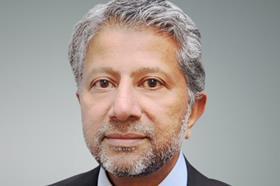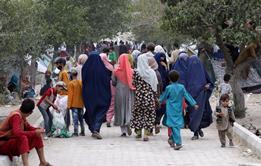The mass migration of people as a result of oppression, conflict, violence or serious public disorder is as ancient as human history. They were often connected with the rise or fall of empires. Religious persecution was also a cause. There are currently well over 80 million people worldwide who have been forcibly displaced. The majority have been ‘internally displaced’ but more than 20 million have fled from their own countries; 86% of them have been hosted by developing countries.

Afghanistan was invaded in 1979 by the Soviet Union, believing that the Afghan elite was becoming increasingly close to America. After almost 10 years, the Soviet Union was defeated by the Taliban, a resistance movement that came into being as a direct response to the invasion. It was funded by the US and Pakistan. The US-led NATO invasion of Afghanistan took place on 7 October 2001, in response to the 9/11 terrorist attacks in New York and Pennsylvania. The Afghan connection was based on scant evidence. The invasion was of dubious legality in international law. After 20 years, at a cost of a trillion dollars and countless lives, the US has accepted defeat and withdrawn. The UK followed. They leave behind a whirlwind of chaos and violence created by a brutal Taliban regime.
Humanitarian crisis
The political and humanitarian crisis in Afghanistan has already created 3.5 million refugees. The instinct of many Afghans is to escape sharia law which they fear will take away all rights of women and minorities. Many of those who worked for the previous government, the US or NATO are already on execution lists. Judges who imprisoned Taliban terrorists are a prime target and have gone into hiding. The few Afghans who have managed to scramble on to planes are a lucky minority – the majority will flee by road.
Pakistan has almost built a wall across its porous border with Afghanistan. Turkey (which already hosts 4 million Syrian refugees) and Greece have completed their border walls to keep out the anticipated train of refugees. A predicted collapse of the banking system and the economy will lead to food shortages, which will fuel the exodus.
States have given protection to those fleeing persecution for centuries. However, the modern law relating to refugees is only 70 years old. Article 14(1) of the Universal Declaration of Human Rights, adopted in 1948, guarantees the right to seek and enjoy asylum in other countries. Many regional instruments have adopted and developed this fundamental right.
Danger of persecution
The 1951 Convention relating to the Status of Refugees defined refugee status as well as the principle of non-refoulement – a fundamental principle which prevents a country receiving an asylum seeker from returning them to a country where they would be in likely danger of persecution over ‘race, religion, nationality, membership of a particular social group or political opinion’. The principle arises out of an international collective memory of the failure of nations during the second world war to provide a safe haven to refugees fleeing genocide at the hands of the Nazi regime. It is honoured more in the breach than in the observance.
Those most vulnerable to attack in Afghanistan are those who have supported British efforts there. Acknowledging a moral debt that the country owes, the UK government established a bespoke resettlement scheme. The Afghan Relocations and Assistance Policy was launched on 1 April 2021. Any current or former locally employed staff who are assessed to be under serious threat to life are offered priority relocation to the UK regardless of their employment status, rank or role, or length of time served.
The Home Office has resettled more than 2,000 former Afghan staff and their families in the UK. The scheme’s critics say it is too narrow in scope, bureaucratic and will not help enough people who are in danger.
After much pressure at home and abroad, the UK government last month announced a further scheme. The prime minister said it is targeted to assist ‘all those who have worked with us to make Afghanistan a better place over the last 20 years’. This scheme will take 5,000 refugees up to the end of the year and then 5,000 every year up to a total of 20,000 refugees. Women, children and religious minorities will be prioritised. The first group of people have already arrived from Kabul, which has been the focus of harrowing scenes of those desperate to escape. Critics point out that other countries are taking on far more refugees in the first year (20,000 for Canada) and that the scheme takes on the same number offered for Syria, which has half the population of Afghanistan and which has not seen British presence for the last 20 years.
In the midst of the refugee crisis, the Nationality and Borders Bill has had a second reading and will become law soon. It proposes to send asylum seekers overseas for processing and seeks to criminalise those who, in desperation, enter the UK without proper entry clearance. Furthermore, it will criminalise those who assist asylum seekers, even if motivated by humanitarian concerns. The UN’s Refugee Agency fears the bill may breach the UK’s commitments under the Refugee Convention. The Refugee Council called it a ‘devastating day for refugee protection’.
Desperate Afghans will not be the last wave of refugees we will see. As global warming continues and climate change becomes a reality, we will see mass migration on a scale unseen in recent times. Countries will continue to enact ever harsher legislation and put up more expensive walls. But no wall will be high enough.
Sailesh Mehta is a barrister specialising in regulatory law. He is a founding member of the Bar Human Rights Committee
Topics
Afghan lawyers’ plea to UK: save us from clutches of the Taliban

Relatives in the UK approach the Gazette with fears for safety of family members.
- 1
- 2
 Currently
reading
Currently
reading
The Afghan refugee crisis




































3 Readers' comments